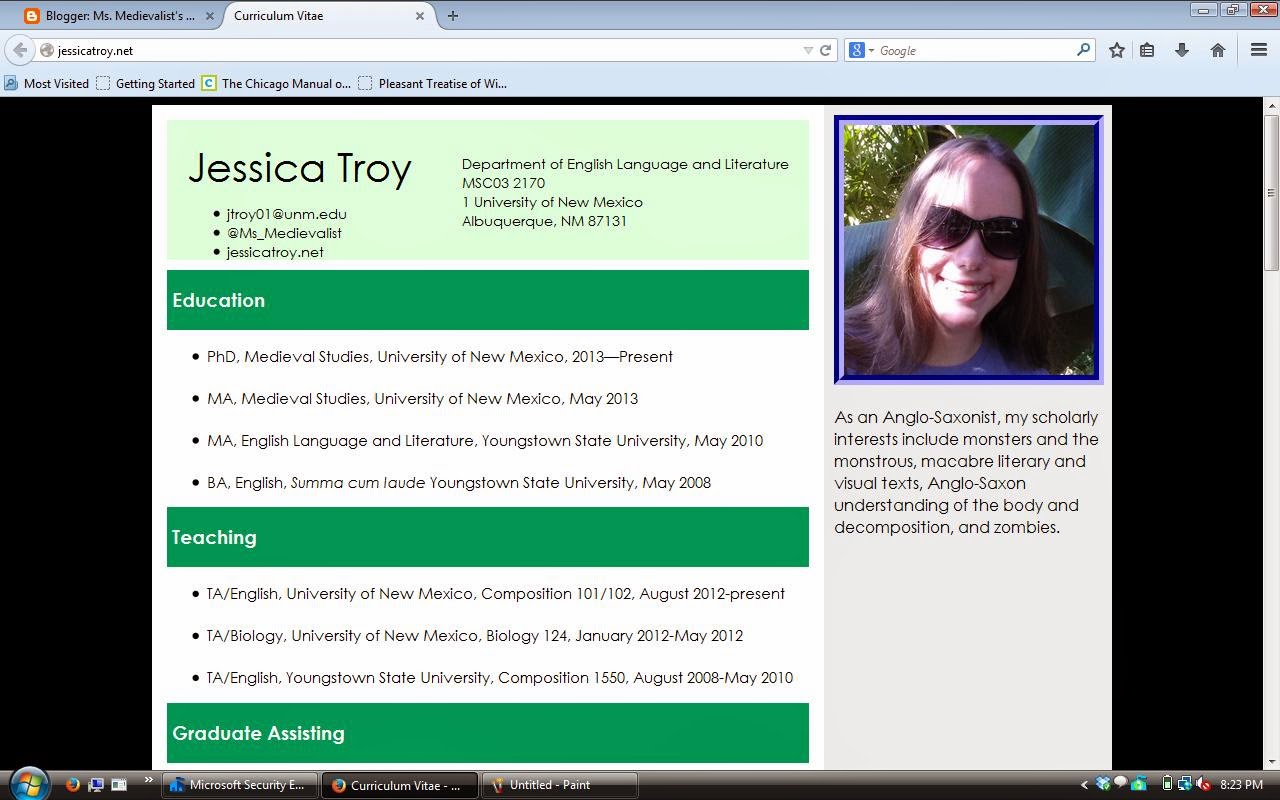In my last post, I wrote an entry which was simply a screenshot of my in-progress CV, and I was pretty happy about it. That is, until I saw what others had dreamed up. I realized very quickly that the original CV page was a good attempt, but I missed the mark that time. Knowing I had missed the mark, my initial response was to avoid the problem altogether because it would maybe go away by itself (we really need to work on these little computer elves (Keebler elves who make websites rather than cookies) that actually help you in your endeavors rather than those icky trolls (not the kind that I really don't know much about, but boogeyman-wannabe ones with hair everywhere and big, gross, snotty noses that take over your computer at night when you're not looking and screw everything up) that make life more difficult). Eventually, I realized that I needed to go back to the problem and hit it head on. This led to the devastating realization that I needed to scrap the first page and try again. I needed to pull a full on mulligan.
Perhaps it's my sentimental side that prevented me from deleting my first ever attempt at writing a web page or maybe it was my refusal to highlight, delete, and reinvent the wheel, but either way I decided to keep that original code (knowing it would never see the light of Internet day). So, I opened a new tab in Notepad++ and got to work. With a particular kind of redesign in mind and a great tutor at my side, I developed something that may still not be a fantastic looking page, but it is definitely better.
Full CV here.
So that's the new and improved CV. It's probably not the best you've ever seen, and it's probably going to be changed quite a bit following this post in the coming weeks and months, but it's all mine. I'm currently going through a tutorial about Javascript, so maybe I'll be able to incorporate something cool in there (apparently, I've got high hopes tonight) with my new found Java knowledge.I guess the sky (and my productive failing) is the limit.
What has this taught me?
This experience continues to teach me that 1. There are no helpful little elves that will do this stuff for me 2. I really shouldn't avoid completing something just because it's infuriatingly frustrating (I probably won't listen to that advice but it's there to annoy me) and 3. Productive failure is a great concept, but when you are experiencing it, the "productive" aspect gets tossed out the window while the "failure" part sticks to your mental insides like fresh Double Bubble gum stuck in your hair.
So much failure.
Well, that's where I am. The highs are super high (like when something cool works and you actually know why), but the lows are SUPER DUPER low. Essentially, learning coding simulates having bipolar disorder and the only relief...well..I don't think there is any. I continue to be nervously excited to see where this DH class takes me, and this blog, I think, will be my outlet. Back to the grindstone.
P.S. Be cautious of any software you're downloading, even from trusted websites! I recently downloaded FileZilla and with it came Astromenda, a piece of hijacking malware that likes to create operational problems on your computer. Who creates this crap? Must be those trolls I was telling you about earlier!




